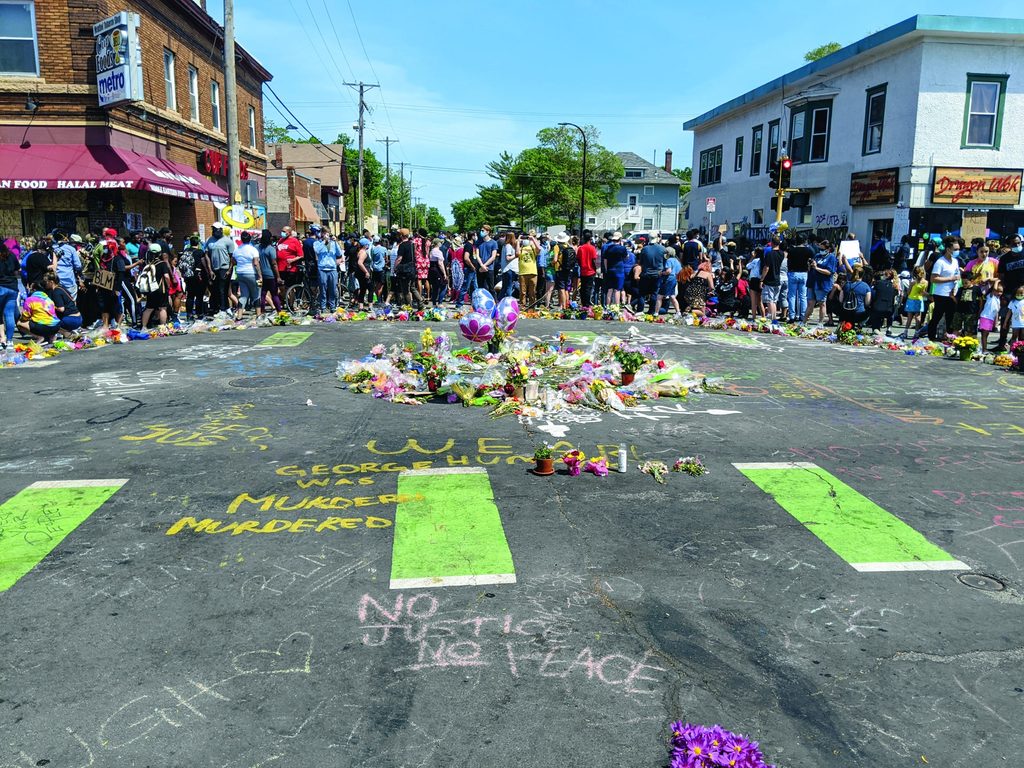The following excerpt is from an original essay that University of Illinois English professor David Wright ’86 read on air for The Texas Standard, an Austin-based public radio program in Texas.

“Teach me,” a friend said to me last week. “You’re a university professor. I want to know what I need to do to make things better for you.”
It’s now a month after the death of Houstonian George Floyd, and my friend asked me to lunch in reaction to the ongoing Black Lives Matter protests that have arisen since. She and I are both 50-something Texans, both from the Panhandle. She is white and dear to me; we dated for a time. I’m Black.
“What is it you want me to teach you?” I started, then heard myself following with: “Why is it I have to teach you things you should already know?”
I wasn’t trying to hurt my friend’s feelings. I genuinely wanted and want to understand. Given that the idea of race and racial difference is constructed—I’m not born with a gene that makes me a better dancer or more drawn to watermelon—then the fact that the police aim their policing disproportionately more at me than her is a by-product of how they’ve been conditioned and sanctioned by society. Yet, while it’s me who directly suffers from racism and therefore might seem to be the one to benefit from it ending, the problem is still hers at least as much as it is mine. She doesn’t seem to recognize this.
If we, as a society, stop attempting to live up to our national ideals, then the experiment of American freedom, however flawed, has failed and all of us, the entire country, suffer for it. And not merely in an abstract, heaven-or-hell moral way. When, for example, it’s your son who, on only his third shift on the force, is ordered by his training officer to put his body weight on the back of a prone man while the supervisor kneels on the man’s neck, this makes of your son a murderer, and so it harms you and your entire family. When your niece, who works at the Border Patrol Processing Center, is ordered to take a breastfeeding baby away from its Honduran mother, this makes of your niece a torturer, and it harms you and your entire family.
Another piece of our shared problem is that even well-meaning white people like my friend tend to disbelieve Black people when we tell them our realities. When I say that the store clerk seems to be following me or that the attendant spoke to me disrespectfully, my friend tends to see it as an anomaly. The impulse is to reduce the American experience to a single experience—white people’s—and the troubling event becomes the result of “one bad apple,” not of institutions and systems that cause these people to treat me in this way.
It was 168 years ago that Frederick Douglass delivered his speech “What to the Slave Is the Fourth of July?” More than just calling for the abolition of slavery, he also spoke of a grander mission still: that the society of his day strive to finally achieve the ideals of equality for all Americans. How is it that, a century and a half later and after a bloody civil war, after another hundred years of struggle for civil rights and so many martyrs gone, we still today read Douglass’s speech with contemporary relevance and not merely as a historical document?
How is it that white people don’t know any more than they know?
How is it that I, a professor who attempts to teach your children these fundamental truths, have to also teach them to you?
